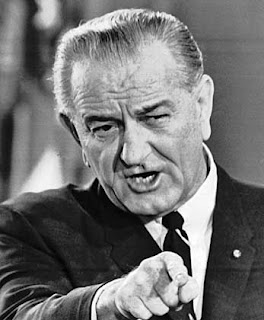Equality as a Fact and Equality as a Result: The Next and More Profound Stage of the Battle for Civil Rights

Next month will mark the 46 anniversary of one the greatest civil rights speeches ever given by an American President. On June 4, 1965, President Lyndon Baines Johnson delivered the Commencement Address at Howard University. The name of his address was, To Fulfill These Rights . Speaking nearly a year after the passage of the Civil Rights Act of 1964 and less than a month before he would sign the Voting Rights Act of 1965 into law, President Johnson proudly hailed the legal freedoms blacks would gain because of these two landmark pieces of legislation, but he added, "freedom is not enough." The president continued: "You do not wipe away the scars of centuries by saying: Now you are free to go where you want, and do as you desire, and choose the leaders you please." "You do not take a person who, for years, has been hobbled by chains and liberate him, bring him up to the starting line of a race and then say, 'you are free to compete with all the others,'...
